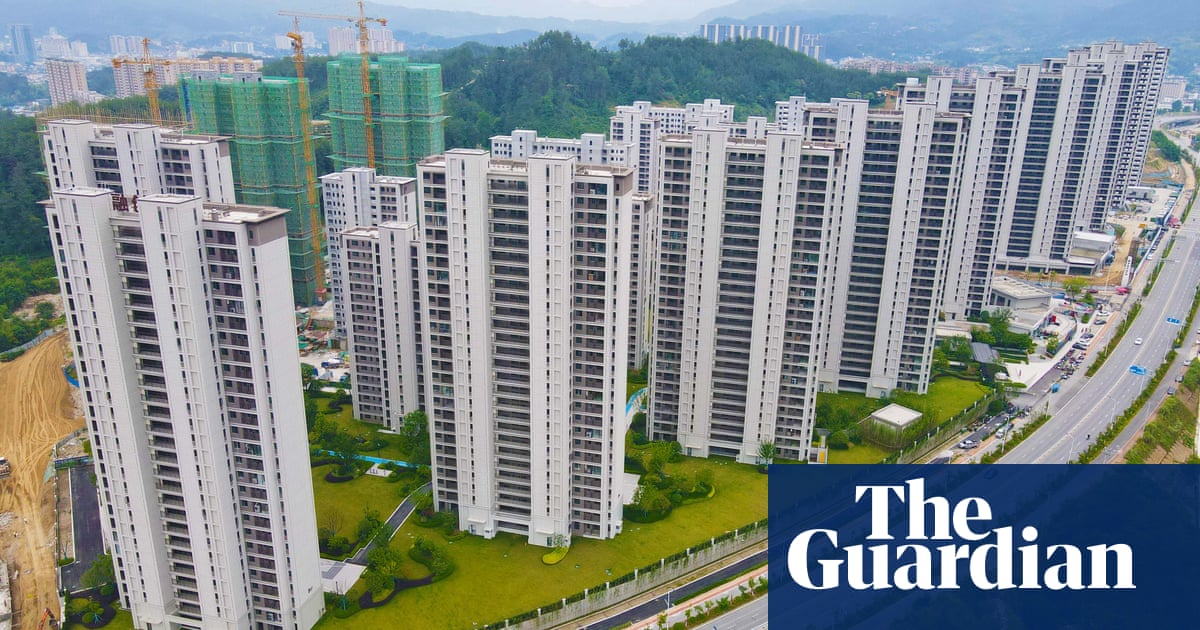The industry that has traditionally powered about a quarter of GDP has been in a downward spiral that policymakers have struggled to halt
All across China, from Beijing in the north, to Shenzhen in the south, millions of newly built homes stand empty and unwanted. There were nearly 391m sq metres of unsold residential property in China as of April, according to the National Bureau of Statistics. That is the equivalent of Manchester and Birmingham combined – and then some – sitting as vacant, unwanted property.
This glut of idle property has caused a headache for the government, shaken the world’s second largest economy and raised tensions over the purpose of housebuilding in a nation where property investment had been viewed as a safe bet.
Since the real estate sector was sent into a tailspin in 2020, caused by the pandemic and a sudden regulatory crackdown, the industry that has traditionally powered about one-quarter of GDP has been in a downward spiral that policymakers have struggled to halt.
The crux of the problem is that, with shaky faith in the economy and big property developers failing to deliver on paid-for apartments, potential homebuyers are keeping their money out of the market.



This is the best summary I could come up with:
Since the real estate sector was sent into a tailspin in 2020, caused by the pandemic and a sudden regulatory crackdown, the industry that has traditionally powered about one-quarter of GDP has been in a downward spiral that policymakers have struggled to halt.
The crux of the problem is that, with shaky faith in the economy and big property developers failing to deliver on paid-for apartments, potential homebuyers are keeping their money out of the market.
Tao Ling, an official with the PBOC, said that local state-owned enterprises would be encouraged to use the funds to buy “reasonably priced” homes and turn them into affordable accommodation.
“While these local players are desperate to prove they can continue to deliver growth, they will be struggling with other priorities and unwilling to add to their debt obligations for investments that won’t provide any long-term profits.”
The authorities “know there isn’t really market demand” for the acres of unsold property, says Alicia García-Herrero, the chief economist for Asia Pacific at Natixis, an investment bank.
García-Herrero expects that there will be more fiscal reform to boost the impact of the policy, likely at the long delayed meeting of the Chinese Communist party’s central committee in July.
The original article contains 958 words, the summary contains 202 words. Saved 79%. I’m a bot and I’m open source!